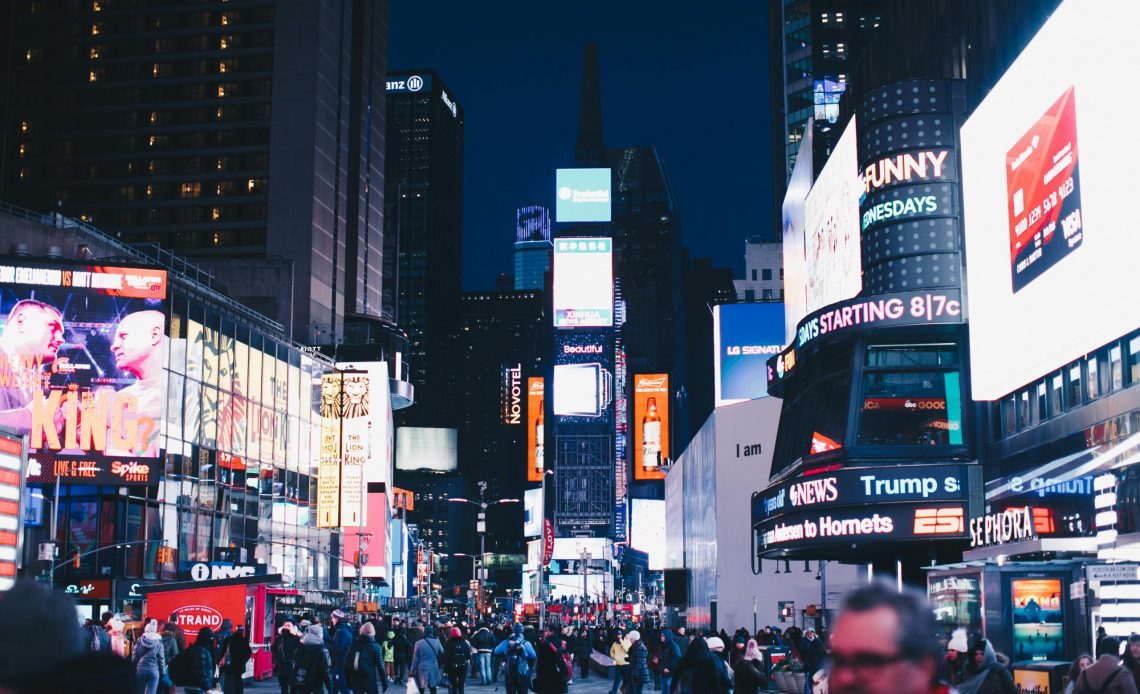
US tourism is collapsing in 2025, and it’s turning into one of the most immediate economic consequences of Donald Trump’s return to the White House.
Airlines are slashing routes. Hotel chains are missing revenue targets. International bookings have evaporated.
The world’s largest consumer economy is watching billions in foreign tourist dollars disappear almost overnight.
Why is everyone turning their backs on the US?
According to new data from Tourism Economics, international arrivals are now expected to fall by 9.4%, compared to earlier forecasts of a 9% rise.
One of the largest drivers of the decline is the political and diplomatic climate under President Donald Trump’s second term.
Tariffs, border policies, and public rhetoric have made the US less attractive to both leisure and business travelers.
In particular, Canada’s role as the US’s top international tourism source has been severely disrupted.
For context, approximately 20 million Canadian tourists visited the United States in 2024.
With 77 million tourists reported in 2024, Canada’s contribution stands at 26%.
But ever since Trump announced 25% tariffs on many Canadian goods, traffic at some border crossings has fallen by as much as 45% on certain days.
Air Canada has reported a 10% decline in bookings for the April to September travel period.
A poll conducted by Leger in March found that 36% of Canadians who had planned to visit the US have already cancelled.
According to aviation analytics firm OAG, bookings on Canada to US routes are down over 70% compared to the same period last year.
Additionally, Mexico, which is the second largest source of visitors to the US, saw a 6% drop in air travel in February compared to 2024.
During Trump’s first term, Mexican travel fell by only 3%.
Border enforcement changes and perceived hostility are expected to deepen the drop this year.
Europe is also souring on the US
Western Europe accounted for 37% of US overseas travel in 2024.
Forward bookings for summer travel from Europe to the US are down 25%, according to Accor SA, one of the world’s largest hotel groups.
Attitudes in Europe have deteriorated sharply since Trump’s reelection.
A YouGov survey from March found that unfavorable opinions of the US had reached record highs.
In Germany, 56% now view the US unfavorably, compared to 53% in Britain and 74% in Denmark.
These are the highest levels since polling began in 2016.
High-profile detentions are worsening perceptions. In March, a British woman was held for 10 days due to a visa issue.
A Canadian woman attempting to renew her visa at the US-Mexico border was detained for 12 days and reportedly shackled.
These stories have spread widely and led to updated travel advisories from the UK, Germany, and other countries.
On March 15, the UK government added new warnings stating that travelers may be detained even for minor violations.
Several European governments, including those of France, Germany, and Norway, have warned transgender and non-binary citizens of new US entry requirements.
The US now mandates that all tourists declare their biological sex at birth on visa applications, reinforcing concerns that the US is no longer a welcoming destination for many travelers.
Meanwhile, other countries are already capturing the displaced demand.
Hotels in Bermuda are seeing a sharp increase in Canadian bookings.
Rental properties across Europe report a 32% rise in summer reservations from Canadian customers.
Egypt and South America are also seeing increased interest as alternative long-haul destinations.
Global events at risk
The timing of this decline couldn’t be worse. The US is currently preparing to host two major global sporting events.
The 2026 FIFA World Cup will be held across the US, Canada, and Mexico.
Additionally, the 2028 Summer Olympics are scheduled to take place in Los Angeles.
Travel experts and sports officials are concerned that growing visa delays and political perceptions may impact attendance.
In some countries, travelers could face visa wait times of up to 700 days.
Brazil, Turkey, and Colombia are among those affected.
What’s worse is that before the elections, US international arrivals had been nearing pre-pandemic levels.
Tourism Economics now believes those numbers will not return until 2029.
The longer-term risk is not simply about lost revenue but about reputational damage that may take years to undo.
How big is the financial damage?
Tourism Economics now estimates that foreign visitor spending will fall by up to $18 billion this year.
This includes a $9 billion drop in spending from foreign tourists alone compared to 2024.
The US Travel Association warned that a 10% drop in Canadian arrivals could mean two million fewer visitors, $2.1 billion in lost spending, and 14,000 lost jobs in hospitality and tourism.
The financial markets are starting to reflect these risks. Shares in major carriers such as United Airlines, Delta, and American Airlines have plummeted, down 30-40% year-to-date.
Most American airline companies are seeing their ratings downgraded.
The hotel sector is facing similar headwinds, particularly for brands with large US portfolios.
Food distributing companies, to flights and airport lounges like Aramark and Performance Food Group, could also receive some indirect hits in their sales.
Moreover, there is a visible economic contradiction in the current trend.
Tariffs were designed to reduce the US trade deficit by limiting imports.
However, in national accounts, foreign tourism is considered an export.
Fewer tourists mean fewer foreign dollars spent inside the US, which makes the trade deficit worse.
It is highly likely that the drop in US tourism will only get worse.
This is no longer just an issue of missed hotel stays and cancelled flights.
It is now a broader economic problem, tied to the country’s image, policy decisions, and long-term position in global travel and trade.
The post US tourism is collapsing: how big is the damage and who are the biggest losers? appeared first on Invezz






